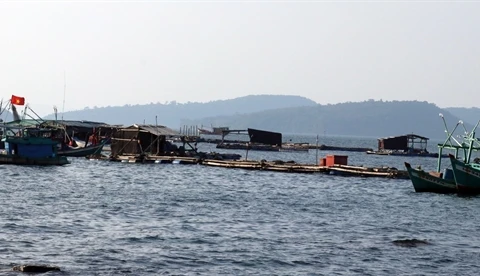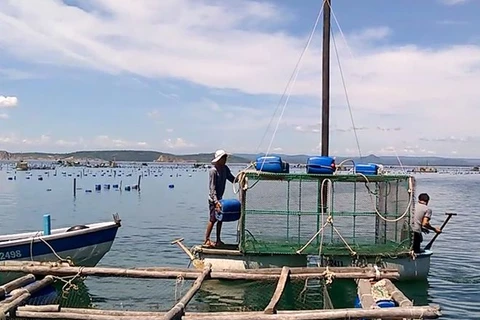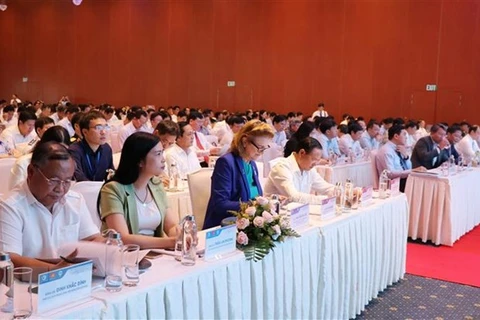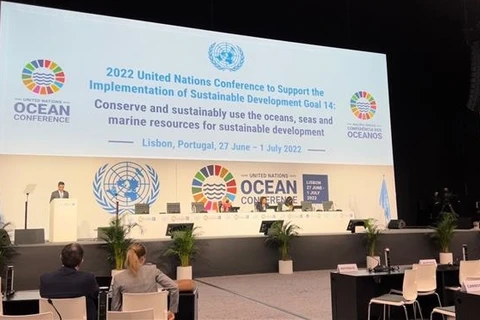 Vietnam has more than 3,260 kilometres of coastline, which provides great natural capital for economic growth. (Photo: VNA)
Vietnam has more than 3,260 kilometres of coastline, which provides great natural capital for economic growth. (Photo: VNA) The workshop was co-organised by the Vietnamese Ministry of Natural Resources and Environment (MONRE), the People's Committee of Quang Binh province, the United Nations Development Programme (UNDP) and the Norwegian Embassy in Hanoi.
Representatives of the Government, provinces and coastal cities from Quang Ninh to Phu Yen, international organisations, experts, and representatives of several units under the Ministry and Department of Seas and Islands of Vietnam, attended the workshop.
Le Minh Ngan, deputy minister of natural resources and environment, said: "As a coastal country with a long coastline and many islands, facing the challenges of environmental pollution, the decline of marine resources, and the impact of climate change, Vietnam has actively developed and implemented policies and laws on management of seas and islands and enhancing international cooperation over the past few years."
"The master plan on sustainable exploitation and use of coastal resources for 2021-30, with a vision to 2045, is a multi-sectoral, difficult, and complex planning, prepared for the first time in Vietnam using the spatial synthesis method," he said.
He said he hoped that: "Through the workshop, active exchanges and discussions, the responsibilities of the participants will clarify the contents of the plan, roles and responsibilities of stakeholders, and solutions to attract and strongly promote the implementation of the plan in practice, as well as the future management and supervision of the implementation of the plan."
The objective of the master plan is to sustainably develop the coastal zone by enhancing the efficiency of resource management, exploitation, and utilisation within an integrated management framework, while proactively adapting to climate change and sea level rise.
It also aims to enhance the lifestyles and living conditions of the coastal communities in conjunction with the conservation and development of natural, ecological, and cultural qualities, maintain social order and guarantee national defence and security.
In her opening remarks at the workshop, Mette Moglestue, deputy head of mission of the Norwegian Embassy in Hanoi, said: “Norway’s experiences with the integrated marine management approach shows that it is possible to develop a prosperous ocean-based economy simultaneously and to keep our oceans clean and healthy. Good marine spatial planning is key to this. Therefore, Norway is happy to co-organise this workshop with UNDP and Vietnamese counterparts and to share our experience and expertise in this regard."
Patrick Haverman, UNDP deputy resident representative in Vietnam, said: "Sustainable management of coastal and marine areas is a crucial tool for Vietnam's development of a blue sea economy, promoting the growth of new sectors to enhance income and create new jobs. Particularly, coastal planning and open marine spatial planning have the chance to capitalise on the vast potential of marine wind energy as an essential renewable energy source for achieving Vietnam's climate objectives.
“Coastal planning will also help ensure optimal and coordinated development between sectors in the exploitation and use of Vietnam's coastal resources, the conservation of nature and biodiversity, preservation of cultural and historical values, and improvement of climate resilience,” he said./.
VNA























